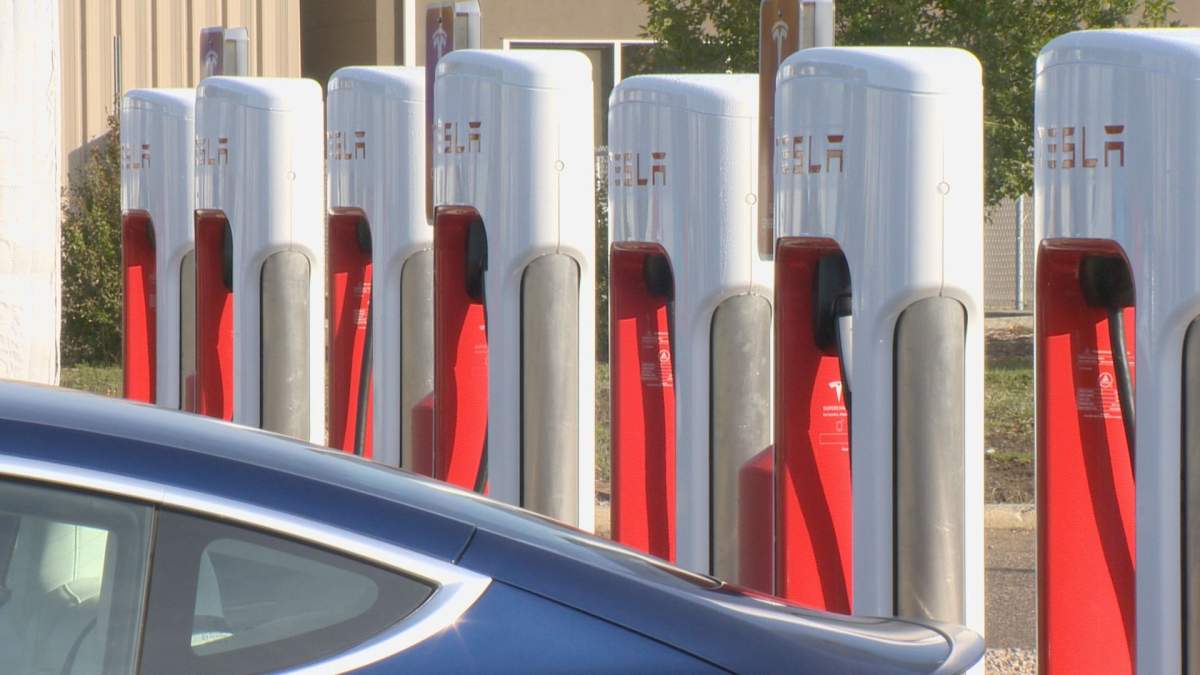It’s an exciting time for Tesla electric vehicle owners in the Queen City — and anywhere in Canada, for that matter.

In the past week, eight Tesla Superchargers were installed in the east Regina Canadian Tire parking lot.
“It proves the concept that electric cars can be just as good as gas-powered cars, if not better,” said Tesla owner and Saskatchewan Electric Vehicle Association (SEVA) member Jeffrey Leach.
They aren’t actually active yet. Tesla has not responded to a request for comment from Global News but the company’s website specifies a “target opening in 2019” for the Regina chargers. Leach says the talk among SEVA members is that the big moment will come very soon and thinks the Regina chargers won’t come online alone.
Tesla is currently carrying out plans to outfit the Trans-Canada Highway with dozens of Superchargers so that Tesla owners will be able to travel across the country worry-free.

Get daily National news
“In very short order, we figure between two weeks to a month or so, everything might be turned on with the flip of a switch,” Leach said. “Driving the Trans-Canada highway will be like driving it with a regular vehicle.”
Leach says the Regina chargers are the most advanced that Tesla currently manufactures. Tesla’s website says its “V3” chargers can power up vehicles at a rate of up to “1,000 miles an hour.” Leach says his vehicle, which has a range of about 500 kilometres at full charge, can fill up in about 18 minutes.
“You’ll basically have time to go to the bathroom, grab a coffee and sandwich and you’re gone again.”
The charge isn’t free, but the dent in your wallet will be a lot smaller than a fill at gas or diesel pumps. Leach says his last fill at a Tesla Supercharger cost him about $8.
“My truck is far more expensive to fill — $100 or more.”
The appearance of the chargers is a milestone for the electric vehicle movement in Canada. While the vehicles remain expensive — Tesla’s website shows the Model 3 starting at $54,990 — more affordable models are beginning to hit the streets.
The SEVA website shows the base price for the 2019 Nissan Leaf as $40,698, and Hyundai’s 2019 IONIQ Electric as starting at $37,899.
More charging stations are being added to the grid as well. Petro-Canada opened the first “fast charger” in Saskatchewan in August and, like Tesla, has plans to install them across the country along Highway 1.
“It justifies buying electric cars,” Leach said. “One of people’s biggest complaints is, ‘How am I going to charge the car?’ Now that we’re getting the infrastructure in place you don’t have to worry about that anymore.”




Comments